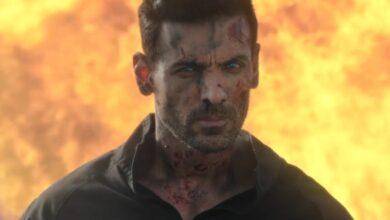The First Omen Review: Exploits The Iconic Recognizability Of A Saga To Investigate Its Primordial Roots
Cast: Nell Tiger Free, Ralph Ineson, Sonia Braga, Tawfeek Barhom, Charles Dance, Bill Nighy
Director: Arkasha Stevenson
Where to Watch: In Theaters
Filmyhype.com Ratings: 3.5/5 (three and a half stars)
The First Omen is in theaters from Thursday 4 April, distributed by 20th Century Studios. Within the purely cinematic horror genre, over the years, many iconic stories and sagas have managed to distinguish themselves from all other works of the same mold, rightfully earning their place within a precise imaginary, remembered and cited in time by both enthusiasts and the more general cinema audience. Among these, we certainly find that of Omen, which began in 1976 with the very famous The Omen, directed by Richard Donner, and then continued with all the sequels and parallel experiments, capable of traumatizing and frightening even several generations over the ages. Are you ready to go back to dealing with a saga like this again? Available in cinemas from 4 April 2024, The First Omen seems to have its origins very clear, building a narrative that anticipates, delves into, and above all deeply anguishes. It is therefore a prequel, a new chapter committed to anticipating the narrative dynamics that fans have learned to know.
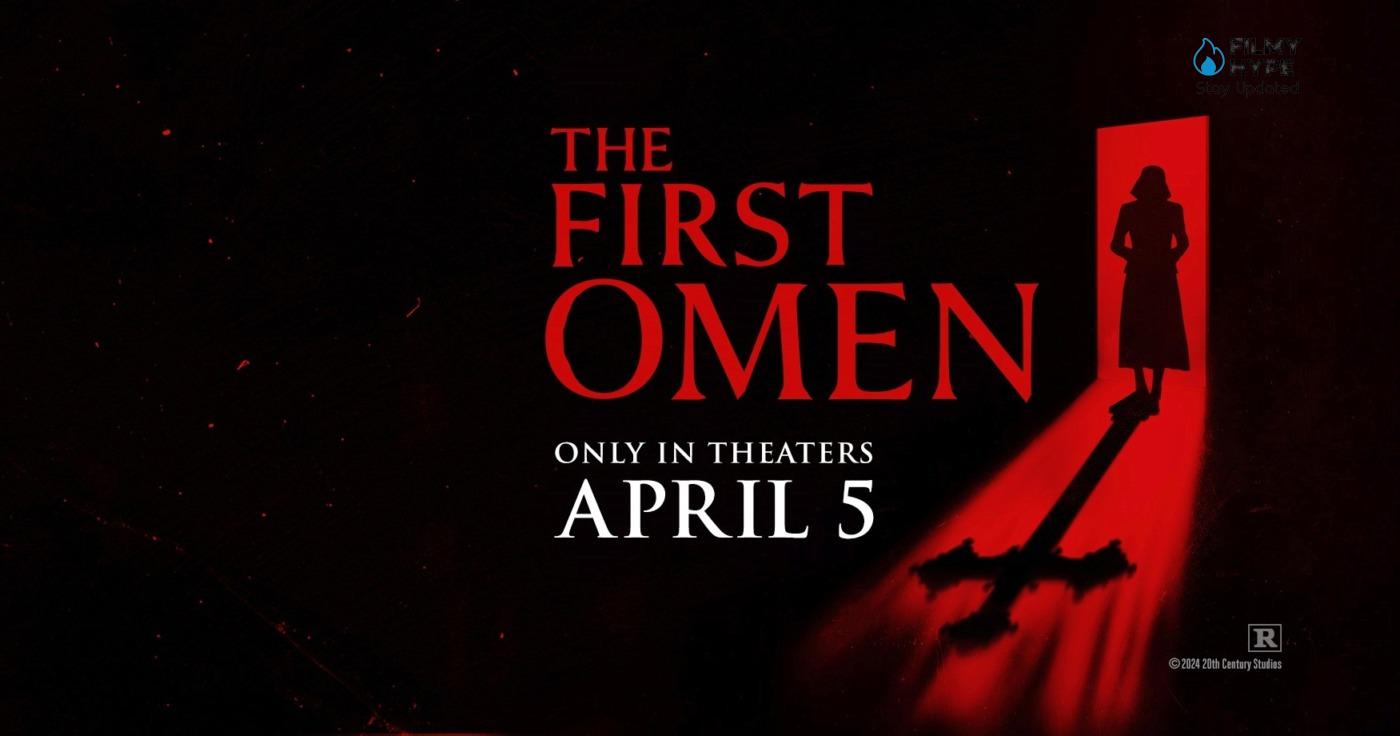
Outlining a story in images that draw from some precise horror symbolisms, consciously addressing an audience that is aware of what it is watching, pushed us to delve deeper into its darkly original meanders. What happened before the events of The Omen? Who was Damien’s mother in reality and what dynamics led to the birth of the child originally? These and other questions are the basis of the feature film directed by Arkasha Stevenson, based on the characters created by David Seltzer, on a story by Ben Jacoby and written by Tim Smith, Arkasha Stevenson, and Keith Thomas. Almost eighteen years later, and amidst a clumsy attempt to make Damien the protagonist of a TV series (whose most interesting element was the use of clips from the first film for flashbacks), the saga returns to the big screen, this time with a prequel to Donner’s feature film, set in the fateful days before Damien enters the life of the Thorn family (almost a horror version of Rogue One: A Star Wars Story). A background that emphasizes the female presence, already notable in previous films but even more so here, as you can discover by reading our review of The First Omen.
The First Omen Review: The Story Plot
The story behind The First Omen is built around its protagonist Margaret (Nell Tiger Free) and the choice to take the veil, after a long journey in the church in this sense. In Rome just before the 1970s, therefore, we find this young woman who has just moved from America to take part in one of the key moments of her life and her faith. Accompanied by a series of characters who introduce her to her own path in this sense, however, not everything goes as she would have expected, finding herself involved in a sort of dark conspiracy within the same church in which it seems that some prominent members are trying to bring the Antichrist alive.
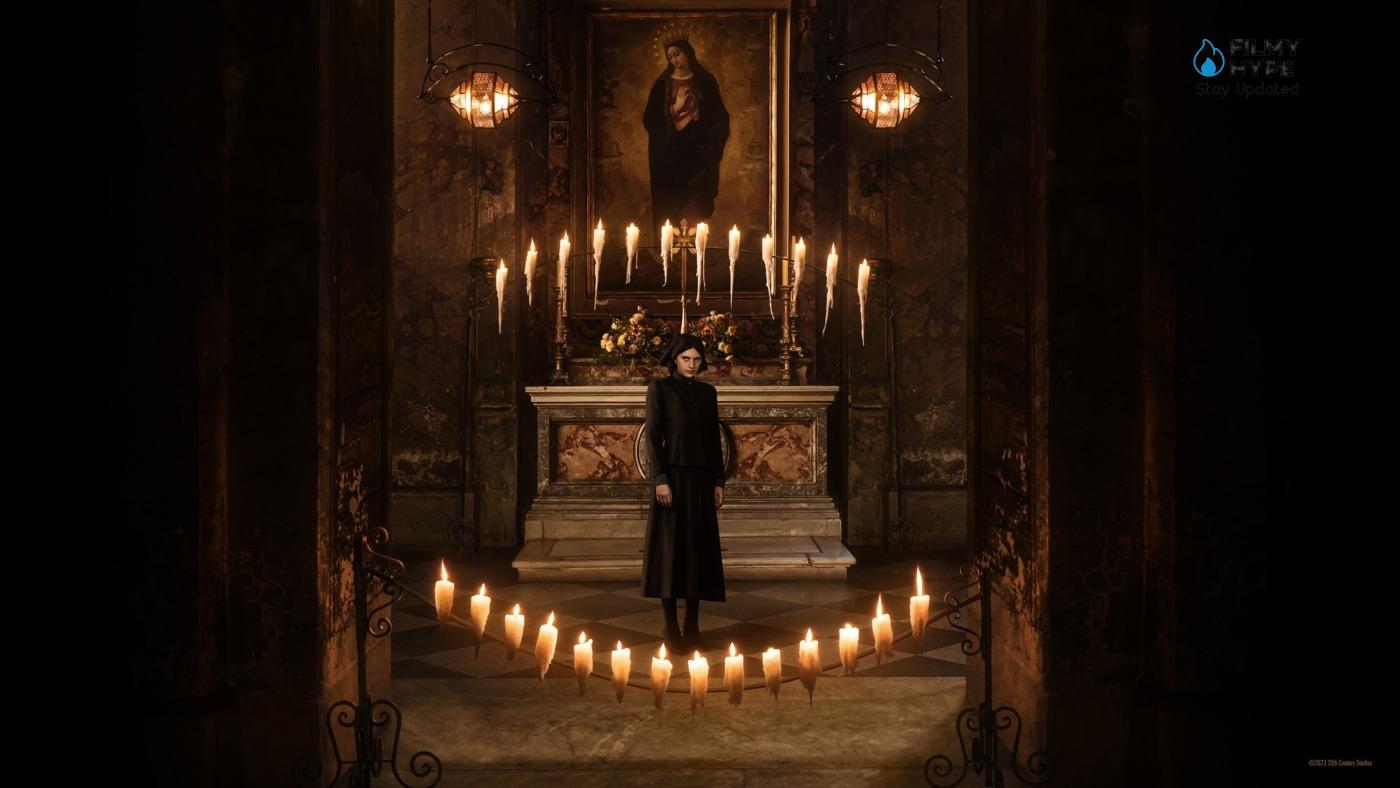
Evil on Earth, therefore, manifests itself in the form of a child, emerging from the darkest and most distressing of darkness, to then coldly bind itself to a religious system that should embody the opposite vision. The First Omen develops starting from a mystery that has its roots deep within, embracing both the conceptual and psychological dimensions, closely connected with human faith. Alongside Margaret, we also find the character of Carlita (Nicole Sorace), a disturbed young woman who is also involved in the ritual shadows at the center of the narrative. The link between the two and the readings of a context devoid of morals accentuate the thriller soul of a story in which horror remains constant.
The First Omen Review and Analysis
The First Omen is a film that is immediately striking for its horror, thanks to its belonging to a saga that has been able to establish itself over time, acquiring considerable recognition even today. From a horror point of view, the focus is on the gestation and violence surrounding the protagonist and the feminine in general, rather than on the child himself. All the questions that emerge from the narrative seek answers in the identity of Damien’s natural mother and in the ritual that directly involved her. Thus, Margaret becomes the unwitting means of a macabre journey into a church that sees her followers as mere objects to obtain the most terrible result possible. By building the narrative on this dynamic and direct reading, The First Omen clearly reflects on the feminine and the perception of women’s bodies as objects. The violent and overt objectification becomes an implicit discussion with the viewers themselves in the theater, adding more layers to a perception of the horror present on the screen and beyond.
In parallel, the theme of change is fundamental in understanding the film, consistent with the historical period in which it is set. The years before ’70 in Italy were marked by the youth revolts and student movements of ’68, which demonstrated civil commitment even in the streets of Rome. In The First Omen, this historical context becomes the perfect pretext to justify a monstrous ritual, condensed in the explanatory sentence of the story on the big screen: “How do you control those who no longer believe? It creates something to be afraid of”. The progressive loss of the previous role of the Catholic Church, therefore, is about the ferocious and inhuman choice to bring people together only and exclusively through fear. From this point of view, The First Omen is certainly interesting, conceptually speaking, even if it does not leave a profound mark in terms of general development.
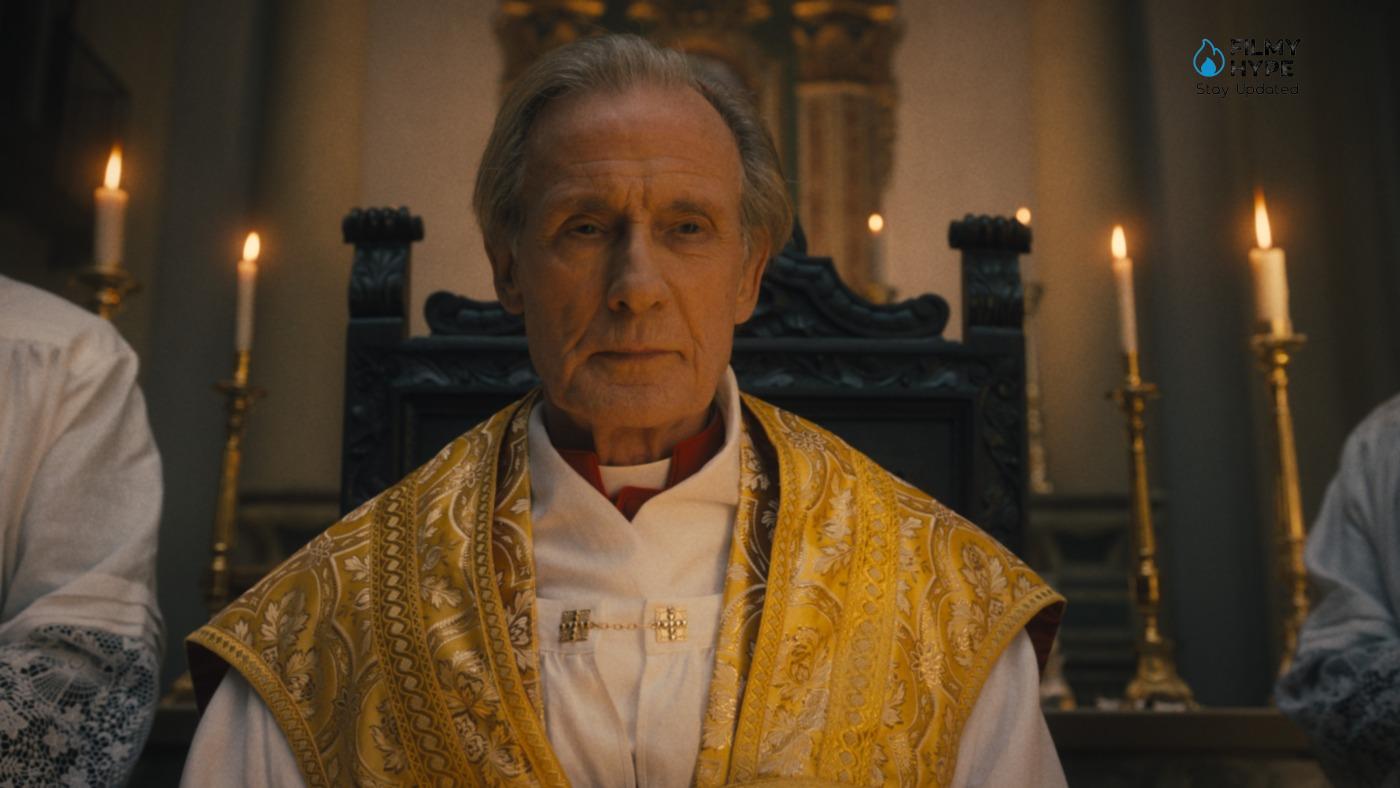
Going beyond the story and the themes, The First Omen is first and foremost an experience that aims to distress spectators at the cinema, and it does so through the underlying mystery and the tension that derives from it, as well as a direction that pays attention to the details, especially in the most intense scenes. Added to all this is an oppressive sense of suffocation deriving from the very point of view of the protagonists involved in sexual acts and rapes that can leave their mark. In narrating gang violence on the female body, the film underlines the horror of the impotence that inevitably results from it, sucking up every ounce of light in favor of a visceral and terrifying darkness. The First Omen plays with some interesting background reflections and a mystery with violent implications that are difficult to fully digest.
In its development, not too original in terms of writing, especially for fans of the genre, the performances of Nell Tiger Free certainly stand out, in some moments immersed in the role, and of Nicole Sorace, in addition to Stevenson’s direction which exploits the details more macabre to push beyond the screen. A weak point of the film is certainly its duration, which is heavily felt. A clean cut of some parts would have benefited the overall experience in the room. Characterized by a brutal realism (in Donner’s intentions, the audience had to wonder more or less until the last minutes if Damien’s adoptive father, Robert Thorn, had simply gone mad), the progenitor of the franchise still boasted some gory anthology finds, including a decapitation that undoubtedly influenced the various Final Destinations.
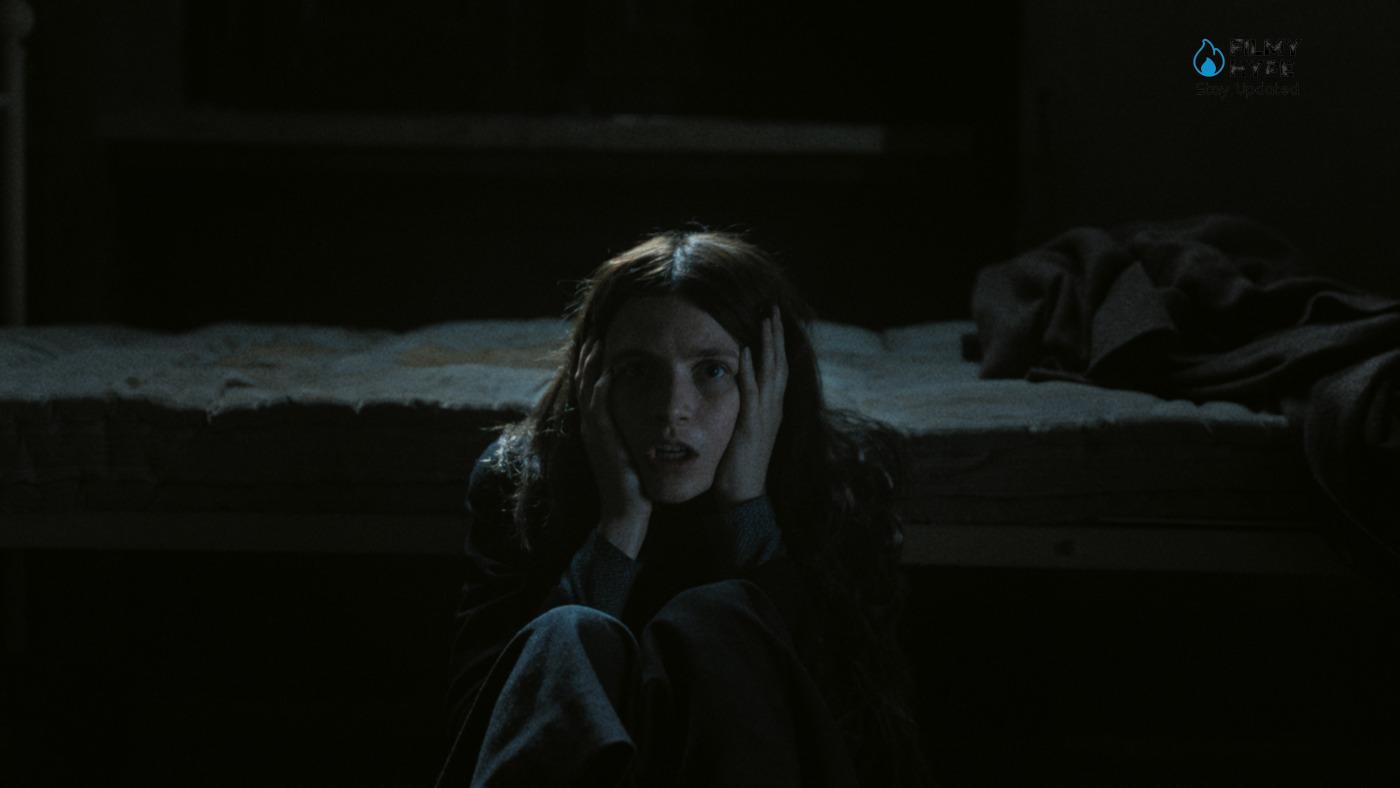
The prequel, while remaining attentive to a more psychological dimension with regards to terror, goes a little further with the physical component, tackling the crucial aspect of the demonic pregnancy head-on with a sequence that has made people talk about it even before the film was released: the director Arkasha Stevenson, who approached the project precisely to explore the various facets of the female figure in this specific context, argued for eight months with the American censors, who wanted to assign an NC-17 visa (the equivalent of the local VM18 and guarantee of very limited distribution and running in the cinema) due to the presence of some frontal shots of the mother’s reproductive organ. In the end, the scene remained almost intact, and slightly trimming the offending shots only increased the visceral impact of that moment, which also had a certain political charge at a time when the American government wanted to limit the autonomy of the body female.
As it happens, Damien’s genesis arrives on the screen a few months after the return to the scene of another faith-based horror franchise, that of The Exorcist (with The Exorcist – Believer, with decidedly less exciting results). Two universes that are explicitly based on the crisis of the Christian religion (in the case of Omen, the 2006 remake linked the rise of the Antichrist to the death of the pontiff, coincidentally in the same period in which the Vatican had a papal succession to manage), and who therefore took advantage of a favorable moment to return to terrorize us. But where William Peter Blatty’s demon – no longer Pazuzu – has lost its horrifying strength, the one created by Seltzer, also due to its very “human” quality, remains a powerful element of the collective imagination in the field of horror. Telling its origin, and without slipping excessively into prequel traps (the shameless references to the other films are few but good), provides new keys to understanding a saga that has always distorted the image of the traditional family, and today can do it even more. With all due respect to US censorship.
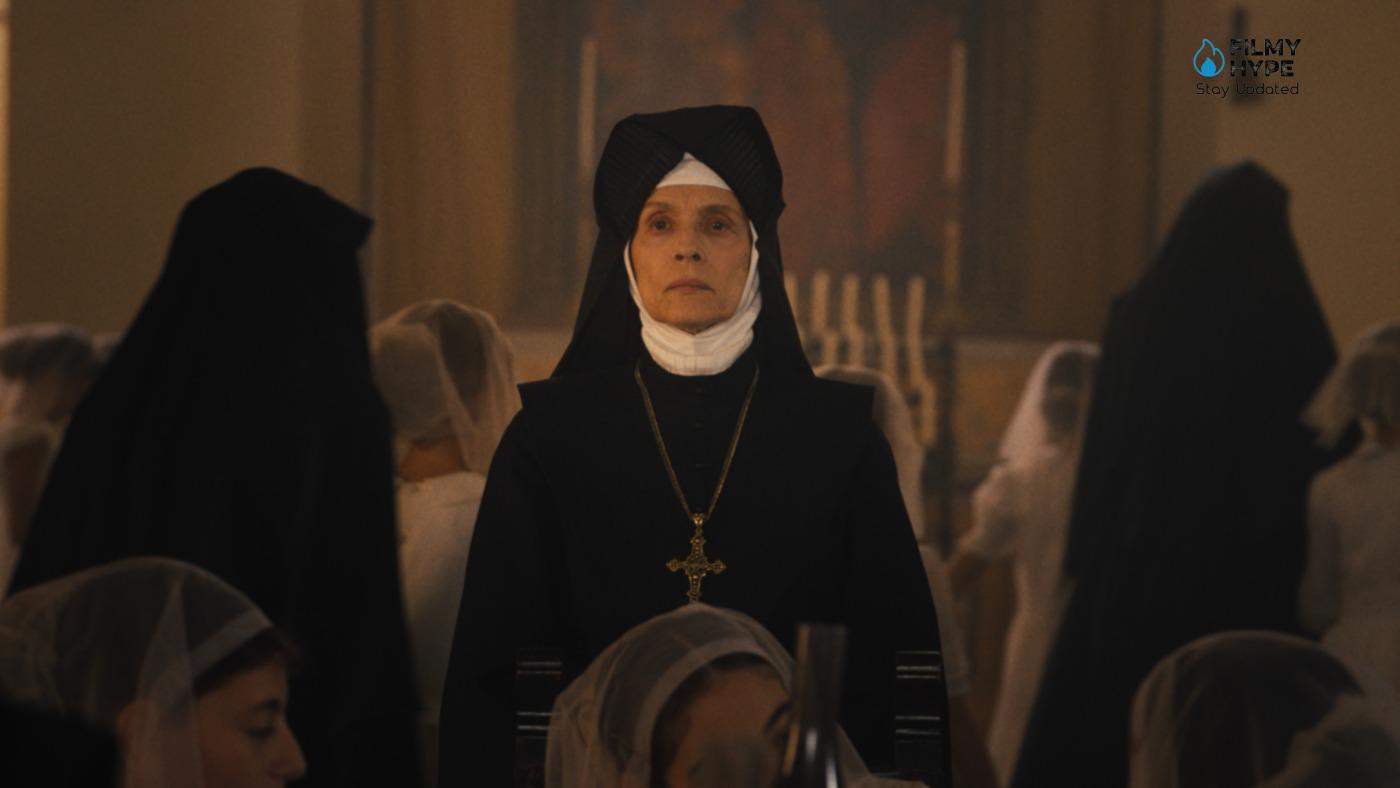
As if that weren’t enough, much more directly horrifying suggestions soon arise, typical of William Friedkin’s cinematography – the ghosts of possession, of shadows, and the protective yet fearsome role of both the devil and the man of faith, protagonists, continually echo. in equal measure of The Exorcist – and so of Ridley Scott, since without arriving at any spoilers, Arkasha Stevenson leads us to her very personal version of an Alien-style birth, shown in what is most likely the most successful and truly memorable from The First Omen and which many spectators might even find complex to observe, unsure whether to cover themselves or voyeuristically continue to watch, between disturbance and horrifying amusement. Not since Lone Wolf by Sean Penn and the much more recent Pieces of a Woman by Kornél Mundruczó have we fully and brutally witnessed a birth of this magnitude?
The First Omen Review: The Last Words
Going back to its origins, The First Omen exploits the iconic recognizability of a saga to investigate its primordial roots, delving into where the films we know did not want to. Focusing on the events shortly before Damien’s birth, the feature film intrigues and arouses curiosity, especially historical fans or enthusiasts, without being too daring in general. Some interesting background reflections connected with the main violence, and the readings in this sense. Too bad it’s too long. There are several merits of this film, among which, are the highlighting of two interpreters of our local cinema who in a substantial production like this, for which we can only wish great fortunes both at the box office and with critics, demonstrate possess noteworthy interpretative skills and which have nothing to envy of big and small names in the Hollywood scene, these are Nicole Sorace and Andrea Arcangeli, who here respectively play the desperate and deeply troubled roles of Carlita and those of the seductive Paolo, the which undresses and definitively observes Margaret for what she is. Maybe evil? Or something more, or rather, different? All that remains is to go to the cinema since discovering it is a real pleasure, as well as a crazy, adrenaline-filled, and ferociously disturbing race between the dogmas of faith and the darkness of the sacred.







